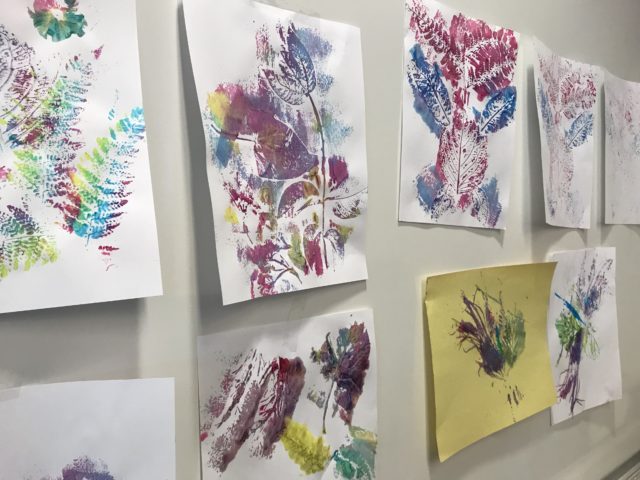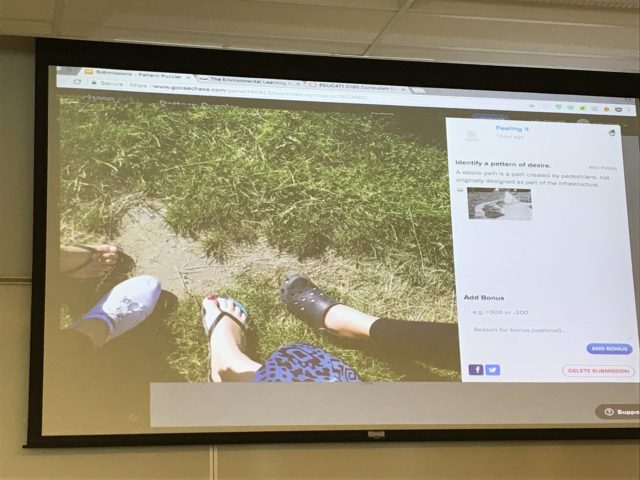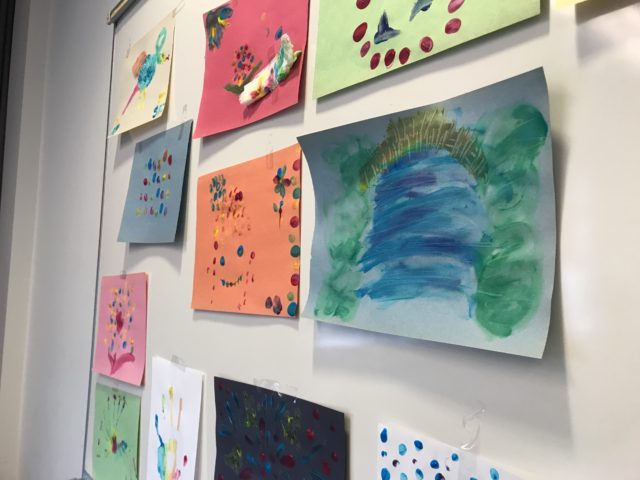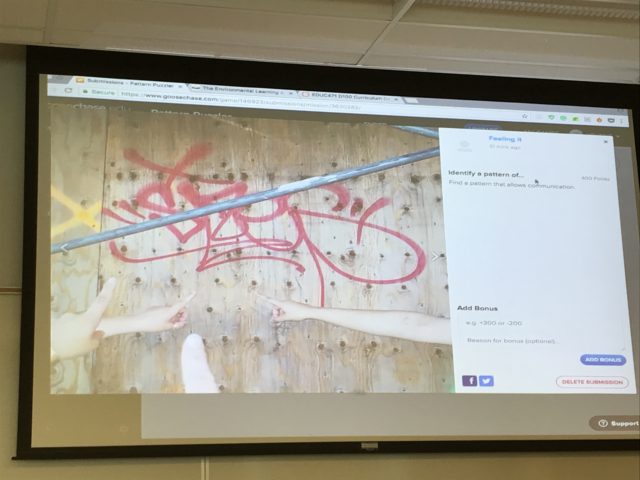What is Formative?
#EDUC454E100 – Week 9 – July 5, 2018
Everyday I am learning. This day was no exception. I often wonder why I am doing what I am doing. This is not meant to be an existential blog entry but I am curious about how we can do what’s best to maximize the student learning experience without getting bogged down. Teaching is a complex practice that changes over time because it needs to be responsive to what’s happening in the world. I am always in the struggle of doing what I think others expect me to do versus what I want to do. My thinking always leans into “you never know unless you try.” Reflect. Accept feedback. Re-imagine. And, try again.
I am a big fan of experiential learning and Kolb’s Experiential Learning Cycle and Ericsson’s Deliberate Practice. We need to engage in something to get better (and better) at it. But how do you move forward. How do you bring things to an end? I am stuck between two worlds of tradition and innovation. Yes, I can understand George Couros’s suggestion of innovating inside the system, but there tends to be push back. For example, when designing the course EDUC454 this term I struggled between flooding students with readings and getting them to synthesize other people’s thinking and creating space and opportunities for student learning and students choice. To add to that dilemma and finding that “sweet spot”… assessment and evaluation clouds that decision making.
I am working in a system that has predetermined rules, expectations, and structures… but within that, like the course syllabus, the instructor has academic freedom and autonomy. I wanted to take this opportunity in teaching EDUC454, but also EDUC471 when I am teaching that course, to play around with some of the ideals of BC’s New Curriculum with the understanding of experiencing of what BC’s New Curriculum could be like as pre-service teachers. What does it mean to be in the implementation dip? Here I am. How do you receive formative feedback post demonstration of learning when there is no second opportunity to return back to the activity, unless offered? Furthermore, if formative feedback is to help and support student learning, it should happen before (or during) the demonstration of learning. Descriptive feedback can be provided as summative where students may take them as formative for the “next thing” they do.
I’ve been left thinking about this all week. Next class is TODAY (I’m a really late on reflecting on last class). I wanted to free students from the burden of grading and wanted to take a MEETING or NOT MEETING approach to the learning activities they are participating and facilitating during the course then leave the summative assessment or grading for the end of the course. What makes this complicated is that the learning activities that they had completed during the course are also summative in nature as it was a demonstration of understanding, we are not returning back to those activities, and they get “marks” for MEETING EXPECTATIONS for those activities. In our grading system, it seems so extreme though… 100% or 0%. Yikes! No wonder students get stressed out.
No wonder it’s a strange expectation for teachers to KNOW what exactly they are doing and why… but also create at structure or plan that you are not able to steer away from to meet student learning needs. This seems absolutely crazy to me. I am the professional. If a student makes a mistake, should they be punished or should they be supported such that I make adaptions to make the situation possible for the student? What I realized last class is, it is evident when people are motivated by grades versus motivated by learning. What to do I mean by that? If the expectation is “X” then those who are just concerned about getting the task done and “meet expectations” they make every effort to meet the expectation as if it was the CEILING. But for students who are motivated by the learning and learning experience, the expectation serves as the BASEMENT or floor to what’s possible. I am witnessing this… but is there a rubric to depict this? NO.
I am beginning to question all of what we are trying to do and achieve in schools. Where is the fun? Where is the love? Where is the joy? Do we talk about these attributes at all in education and if so, is it valued? I would suspect not if we don’t put a grade to it or if it’s not substantiated with a list of literature to say that it’s true. Can we not experience fun, love, and joy as part of our LEARNING? This is where we talked at length at the Math K-9 Curriculum Development Team a few years ago… Where is the WONDER in mathematics? How do we get students to wonder when we are focused on worksheets or memorizing the times table so that we can DO mathematics? There are many interests in education that’s pulling us into so many different directions… nothing is getting done. We remain in the status quo and the system remains resilient. Knowing this is not hopeful.
Maybe this blog did become a bit existential… This has been a challenging week which puts me into of a place of reflection. Yes, I’m back into the experiential learning cycle.
I would like to thank the group of 4 this week for facilitating Week 9’s group facilitation learning activity integrating art, nature, patterns, and technology. I enjoyed the GooseChase APP to document learning. It was challenging to decipher some of the metaphors connecting place and patterns, but I think all of the teams met the challenge. I also appreciated using hands on learning using art and nature as a form of reflection of our GooseChase experience. It makes me think further about how we can integrate technology as a learning tool in our classrooms but also hands on learning (like maker space) to sense make, reflect, and personalize learning. Metaphors and working with my hands are not my strengths but I can really appreciate how we can use innovative strategies to invite students into learning opportunities they may not feel comfortable with. I love how this could lend itself to ELA, social studies, and math.



Finally, thank you another student for taking the creative liberty of summarizing this week’s reading on curriculum maps. I liked how you had focused on the learning cycle instead of C.A.R.E., which we did at the beginning of the course. I also appreciated how you connected the learning cycle to your dad’s retirement and honouring him with shaving off your hair. That is BOLD. That is love. I feel honoured that you were willing to share that personal experience with the class and make a connection to the learning cycle. You got me thinking about where we can start in the learning cycle. I had always believed that the cycle started with a concrete experience. Yet, as you point out, it’s a cycle thus you could start anywhere on the cycle. You’ve heightened my thinking.
Weekly Journal Questions
“All education is environmental education.” – David Orr
What are your thoughts on this statement?
Yes. I can see how environmental education can be an integral part of learning and learning experiences in all subject areas. If back in the classroom, I would like to teach outside and find ways where I could take my students outside to make meaningful and memorable learning experiences where they can take mathematics, for example, into place and connect what they know to the land. I would love to take that further in a Math 8-12 classroom and take learning outside that is meaningful and purposeful.
From page 9 of the Curriculum Maps reading, describe how EDUC454 has demonstrated each principle of C. A. R. E. and parts of the learning cycle.
COMPLEXITY: considering the complexity and interrelatedness of natural and human created systems, and how humans interact with and affect those systems
(GROUP FACILITATION)
AESTHETICS: developing an aesthetic appreciation for the natural world that encourages students to learn about and protect the environment
(GROUP FACILITATION/WARM-UP ACTIVITIES)
RESPONSIBILITY: providing opportunities for students to take responsible action and explore the environmental impact of their decisions and actions
(INQUIRY PROJECTS)
ETHICS: providing opportunities to practice an environmental ethic based on an examination of values that can give rise to new visions, possibilities and actions
(INQUIRY PROJECTS AND GROUP FACILITATION)
Looking at the Curriculum Maps, find your subject specialty/grade level. Imagine and describe what a cross-curricular lesson would look like with respect to C.A.R.E., the learning cycle, and selected learning outcomes.
Math K-12 was suggested to be interdisciplinary… SO LET’S DO THIS!!! If back in the K-12 classroom, I would love to teach teach, co-collaborate, and design a course or unit that is cross-curricular, outside, and joyful. Let’s get math out of the silo and let’s interconnect.
